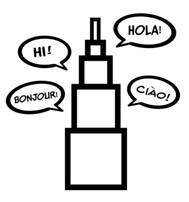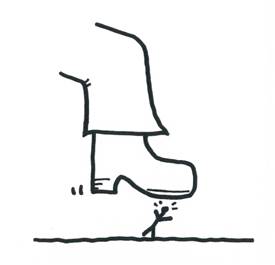 Israel (Jacob) loved his family dearly, but he showed favoritism toward his son Joseph, much to the frustration of the other eleven. He gave Joseph a beautiful multicolored coat. Joseph’s brothers ambushed him in the fields one day, sold him to Egyptian merchants as a slave, and deceived their father into believing his favorite son had been killed. Meanwhile, Joseph was sold to an Egyptian named Potiphar, in whose house he performed well as a slave. After Joseph rebuffed Potiphar’s wife’s advances, she accused Joseph of attacking her and had him thrown into an Egyptian prison. In prison, God was with Joseph as he interpreted the dreams of the Pharaoh’s taster and baker who were imprisoned with him.
Israel (Jacob) loved his family dearly, but he showed favoritism toward his son Joseph, much to the frustration of the other eleven. He gave Joseph a beautiful multicolored coat. Joseph’s brothers ambushed him in the fields one day, sold him to Egyptian merchants as a slave, and deceived their father into believing his favorite son had been killed. Meanwhile, Joseph was sold to an Egyptian named Potiphar, in whose house he performed well as a slave. After Joseph rebuffed Potiphar’s wife’s advances, she accused Joseph of attacking her and had him thrown into an Egyptian prison. In prison, God was with Joseph as he interpreted the dreams of the Pharaoh’s taster and baker who were imprisoned with him.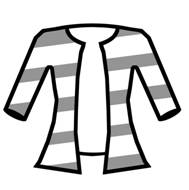
During the difficult ups and downs of Joseph’s time in Egypt, God was there — reminding him to trust, even during the difficult times in prison. God’s presence brought Joseph peace and comfort. A few years later, the Pharaoh had a dream about seven fat cows being eaten by seven skinny cows. He called his wise men to provide an interpretation, but had no luck. One of the men in his court remembered being in prison with Joseph, who had interpreted dreams earlier. Joseph was called from prison to explain the dream. He told the Pharaoh that the God of Abraham was warning that there would be seven years of great crops followed by seven years of famine. Joseph recommended a national savings plan to store up grain for the coming famine. Pharaoh was so impressed that he elevated Joseph to second-in-command of the Egyptian empire. The seven years went by, the food was stored up, and then the famine struck, just as predicted. Its devastation was felt back in Israel’s fields where Joseph’s father (Israel) and brothers still resided. Israel sent his sons to Egypt to find food before the family starved. Little did the brothers know that their “dead” brother was now in charge of the known world. Joseph recognized his brothers, but they didn’t recognize him. Through a series of “tests,” Joseph determined whether they had learned to trust God, or if they were still corrupt. They eventually passed the tests and brought his younger brother, Benjamin, and his father to Egypt. The family secret was brought to light when Joseph revealed his true identity, hugged his father, and forgave his brothers. He gave them his secret to trusting God those many years, saying, “What you intended for evil, God used for good.” The entire family and budding nation of Israel moved to Egypt to experience the joy of living under the wise and gentle leadership
of Joseph. Genesis ends with Israel’s death and a renewed commitment to forgiveness. Eventually, Joseph died.
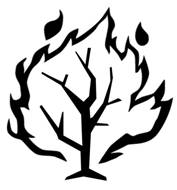 The book of Exodus begins. The old Pharaoh who knew Joseph died, and his legacy died with him. The new king of Egypt didn’t remember Joseph or his empire-saving work, and enslaved the Israelite descendants of Jacob. They were enslaved to keep them under
The book of Exodus begins. The old Pharaoh who knew Joseph died, and his legacy died with him. The new king of Egypt didn’t remember Joseph or his empire-saving work, and enslaved the Israelite descendants of Jacob. They were enslaved to keep them under
control, providing a plentiful workforce for government projects. Jacob/Israel’s descendents were enslaved in Egypt for 400 years performing hard labor. They prayed and cried out for a deliverer that entire time. God answered their prayers when a young boy named Moses was born. Moses had to be hidden from the Pharaoh, who was killing young Hebrew children as a means of population control. Moses’ parents placed their baby in a basket and pushed him out into the Nile River, hoping that God would save him from death. Pharaoh’s daughter found Moses and raised him in the Egyptian society until he was around forty years old. As he matured, Moses saw his people abused in slavery and decided to be their deliverer. In anger, he struck out at one of the Egyptian guards and killed him. The people rejected Moses’ leadership, and he went on the run from the Egyptian militia.
Moses hid in fear, out in the wilderness in Midian for 40 years, where he married Zipporah. Moses learned about leadership and business in the fields of his father-in-law, Jethro. One day, while Moses was tending sheep, God appeared to him in a burning bush. God told Moses that He had heard the people’s call for delivery from slavery. God wanted Moses to be His delivery man. Moses told God, “I don’t deliver!” and “I don’t even speak in public due to my stuttering problem.” God showed Moses several miracles and asked the familiar refrain, “Will you trust Me?” Moses agreed and headed to the Pharaoh, demanding that he “deliver” God’s people. God taught His people how to trust, one miracle at a time. Moses’ staff turned into a snake, but Pharaoh was unimpressed. God then turned up the heat, sending ten plagues (which were miraculous judgments) against Pharaoh to change his mind and free the Israelite people. Each plague was aimed at one of the Egyptian gods, to prove that there’s only one true God. Pharaoh refused to recognize God despite the darkness, the frogs, the boils, the blood, and eventually the death of his own firstborn child.
The tenth plague required an act of trust. God told His peop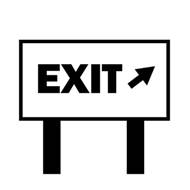 le to take a perfect lamb, sacrifice it, and put the blood over the door so that this plague would “pass over” every house with blood on the door. God had formulated a way for His people to be rescued from pain and judgment. Many Egyptians decided to trust God, so they too painted blood on their doors, trusting God for deliverance from judgment. This blood on the door may seem primitive and gruesome and perhaps a little weird. Why would God institute such a strange ritual? He was using this as an object lesson for His people in order to teach them that something needed to die in their place. God was teaching them to depend on something besides themselves to achieve a right standing with Him. The Pharaoh didn’t trust God and lost his own son that night. He decided to let God’s people go, only to chase them down soon thereafter. Pharaoh cornered the Israelites at the Red Sea. Moses trusted God, raised his staff and saw the mighty waters of the Red Sea part, opening a path for deliverance. Pharaoh chased after them and God allowed the waters to come together, drowning the army.
le to take a perfect lamb, sacrifice it, and put the blood over the door so that this plague would “pass over” every house with blood on the door. God had formulated a way for His people to be rescued from pain and judgment. Many Egyptians decided to trust God, so they too painted blood on their doors, trusting God for deliverance from judgment. This blood on the door may seem primitive and gruesome and perhaps a little weird. Why would God institute such a strange ritual? He was using this as an object lesson for His people in order to teach them that something needed to die in their place. God was teaching them to depend on something besides themselves to achieve a right standing with Him. The Pharaoh didn’t trust God and lost his own son that night. He decided to let God’s people go, only to chase them down soon thereafter. Pharaoh cornered the Israelites at the Red Sea. Moses trusted God, raised his staff and saw the mighty waters of the Red Sea part, opening a path for deliverance. Pharaoh chased after them and God allowed the waters to come together, drowning the army.
Now that God’s people had “exited” out of Egypt, He taught them how to trust Him. He gave them bread every morning. This bread was called manna, which literally means, “What is it?” God asked His people to collect enough bread for one day at a time, so that they would learn to trust God daily. This object lesson worked for a while, but all too often the people grumbled and complained rather than trusting. When water became scarce, the people complained and begged Moses to take them back to Egypt. God instead provided a giant fountain of water to quench their thirst. Moses then went up on Mt. Sinai to receive God’s commandments on how to live a life characterized by loving God and others.
While he was gone, Moses left Aaron in charge to remind the people to pray and trust God. Moses was gone for a long time. How long? Long enough for the people to melt down their earrings and watch Aaron fashion a golden calf from the metal. The people began to worship the statue and gave it credit for delivering them from Egypt. Moses finally came down from the mountain and saw the people not trusting God. They were breaking many of the commandments just handed down: Do not have any other gods but me. Do not make statues of idols. Do not lie, steal, or commit adultery. Do not covet or use God’s name in vain. Honor your parents and keep the Sabbath holy. These laws show mankind what an obedient/trustworthy life looks like. Ironically, it also showed them how far short they fell from living obediently. Moses taught the people how to seek God for forgiveness. He also received instructions on how to make a tabernacle for worship and steps for offering various sacrifices for forgiveness. God outlined the blueprints for making the Ark of the Covenant and told Moses which duties the priests would perform. The Ark of the Covenant was a portable box overlaid with gold that contained the tablets with the Ten Commandments, symbolizing the presence of God. The most important part of the Ark was the mercy seat, a section on top that made a way for God’s people to find forgiveness.
The book of Exodus reached its climax as the God of the heavens, who cannot be contained in our universe, chose to live among His people in this tabernacle. God’s glory, which means the full weight of His greatness, came down and resided in the tabernacle. God was now close enough to experience. He appeared to His people in a pillar of fire and cloud. The people were given the same choice that we all have today: “Will we trust Him to be our leader and forgiver?”
Here is a live teaching of Fast Track: Genesis-Exodus
For more information, check out www.godonomics.com
